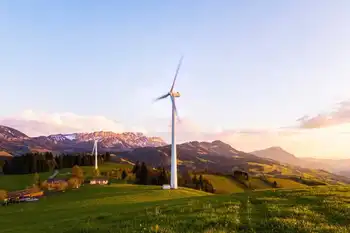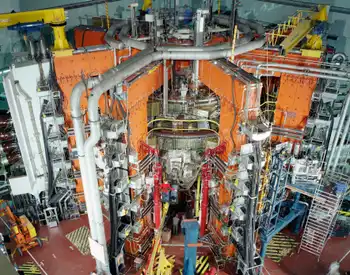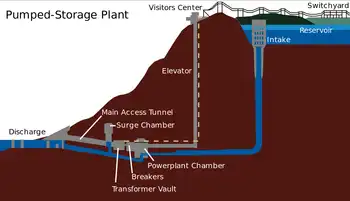U.S. to announce 'Beyond Kyoto' climate pact
CANBERRA, AUSTRALIA - The United States, the world's top polluter, is set to unveil a five-nation pact to combat global warming by developing energy technology to cut greenhouse gas emissions, officials said recently.
China and India, whose burgeoning economies comprise a third of humanity, as well as Australia and South Korea are part of the agreement to tackle climate change beyond the U.N.'s Kyoto protocol.
The United States and Australia are the only developed nations outside Kyoto, which demands cuts in greenhouse emissions by 5.2 percent below 1990 levels by 2008-12. Both say Kyoto is flawed because it omits developing states.
Diplomats in the Laotian capital Vientiane said the pact would be formally announced when U.S. Deputy Secretary of State Robert Zoellick holds a news conference attended by representatives of the other signatories.
Zoellick is attending a regional forum in Laos.
Details of the pact were unclear but it appears to echo recent comments by President Bush who advocates the use of technology to curb growth in greenhouse gas emissions rather than setting Kyoto-style caps on emissions.
Bush believes Kyoto would threaten the U.S. economy even though many of his allies see it as a vital step to brake a rise in temperatures they fear could trigger more floods, storms, lift sea levels and drive thousands of species to extinction.
Environmentalists expressed concern that Washington might try to lure China and India away from U.N. talks, starting this year, about how to widen Kyoto to include developing nations after 2012.
"This might be a benign technology agreement between the five countries," said Steve Sawyer, climate policy director at Greenpeace. "On the other hand, this could be the first foray by the Americans and Australians to knock Kyoto on the head."
The WWF urged Washington and Canberra to agree Kyoto-style caps on emissions, saying that any regional energy technology deal was only a partial solution. And it said China and India had promised to take part in talks on widening Kyoto.
"A deal on climate change that doesn't limit pollution is the same as a peace plan that allows guns to be fired," said Jennifer Morgan, head of the WWF's climate change program.
Australian Environment Minister Ian Campbell said that the five countries had been quietly working on the pact for months.
"It's quite clear the Kyoto protocol won't get the world to where it wants to go... We have got to find something that works better - Australia is working on that with partners around the world," Campbell told reporters.
The Kyoto protocol, first agreed in 1997, came into force in February after Russia ratified it is of limited use because many signatories are far above their emission targets.
"We need to expand the energy the world consumes and reduce the emissions. That's going to need new technologies, it's going to need the development of new technologies and the deployment of them within developing countries," Campbell said.
As economies expand, the world is consuming more energy and is producing more greenhouse gas emissions, particularly carbon dioxide from burning fossil fuels such as coal in power plants and petrol in cars.
"I think it is a good idea because the development of these technologies is important and I've always said there has to be a partnership between North and South in these technologies. This is one way of working together," said Rajendra Pachauri, chairman of the United Nations' Intergovernmental Panel on Climate Change (IPCC).
"It does not interfere with the Kyoto protocol," he said.
Japan, the world's number two economy, appeared to welcome the pact but some others were critical.
"This is all about taxpayers' money being diverted from developing clean renewable technologies to try and make burning coal less dirty," Bob Brown, leader of the minority Australian Greens party, said in a statement.
Australia and China are the world's largest coal exporters, while the United States is also a top exporter.
The IPCC has said world temperatures are likely to rise between 1.4 and 5.8 degrees Celsius by 2100, linked to the build-up of greenhouse gases from human activities.
Scientists say the planet's average surface temperature has increased by about 0.6 degrees Celsius over the past century.
Related News

Georgia Power warns customers of scams during pandemic
ATLANTA - With continued reports of attempted scams and fraud by criminals posing as Georgia Power employees during the COVID-19 pandemic, the company reminds customers to be aware and follow simple tips to avoid becoming a victim.
Customers should beware of phone calls demanding payment via phone to avoid disconnection.
Last month, Georgia Power and the Georgia Public Service Commission extended the suspension of disconnections due to the impact of the pandemic on customers. In addition, the company will never ask for a credit card or pre-paid debit card number over the phone. The company will also never send employees into the…




